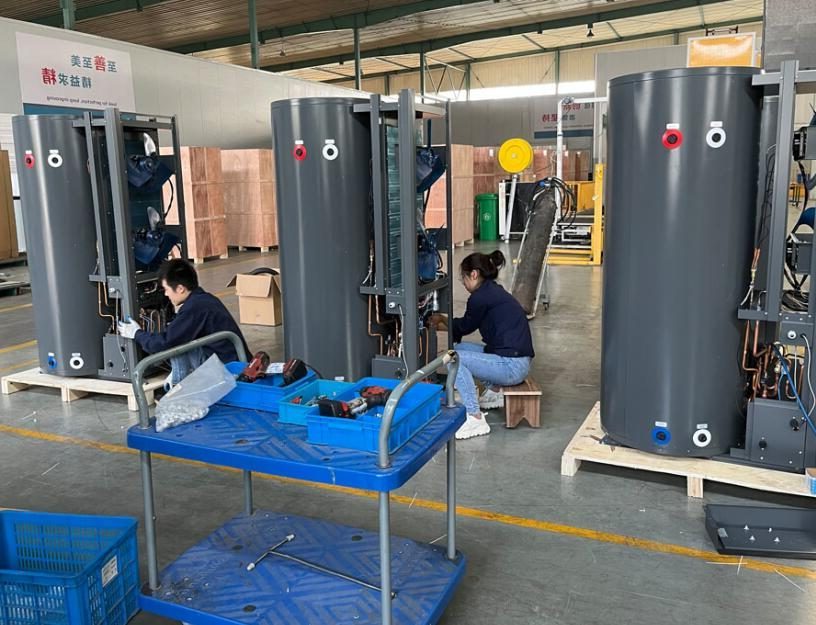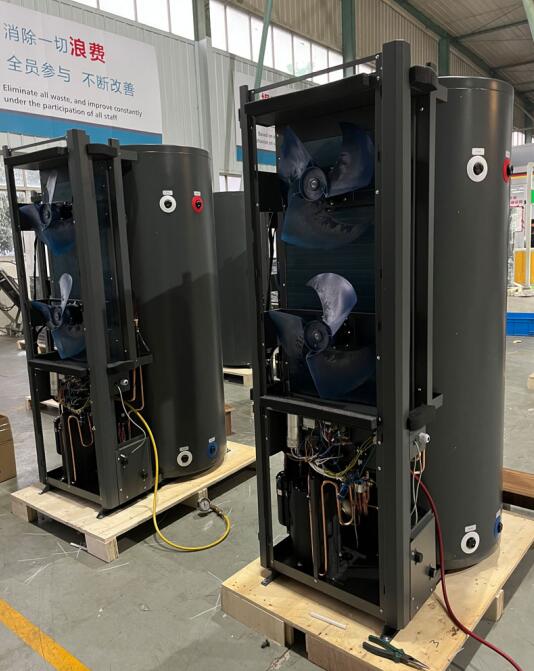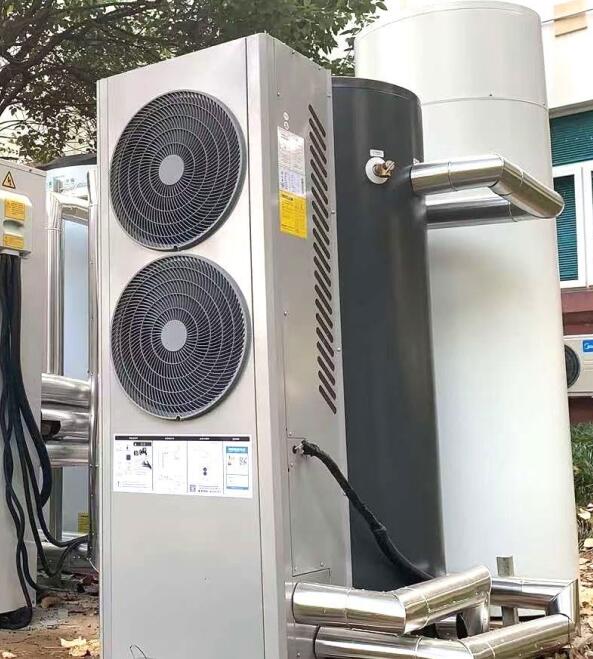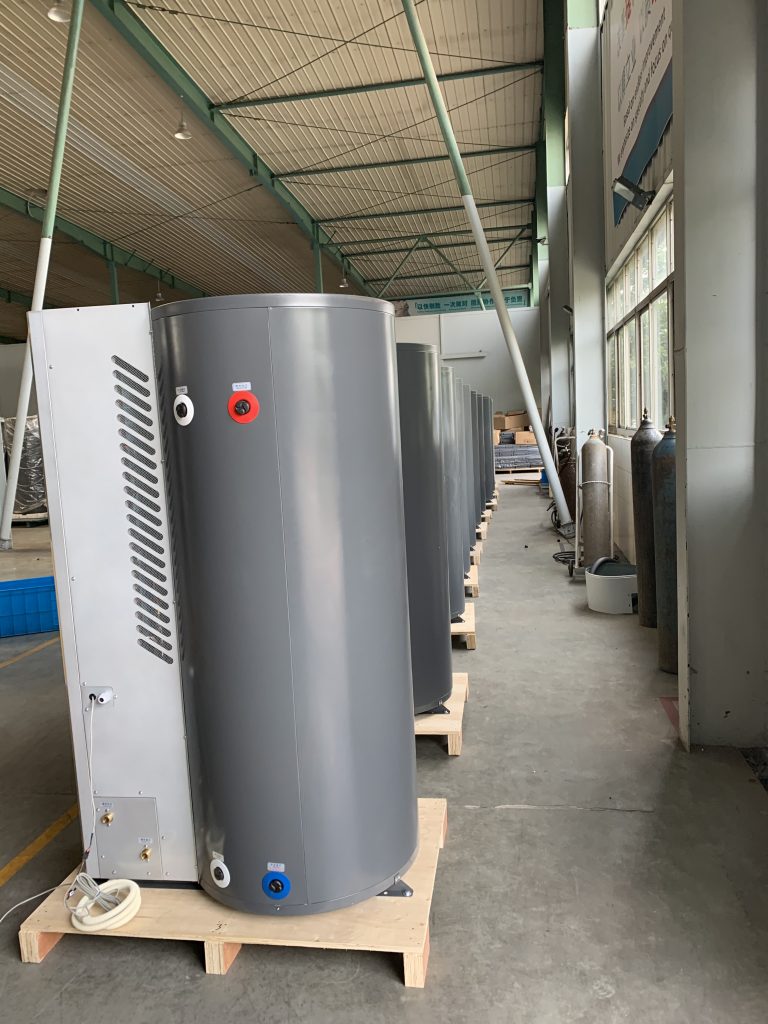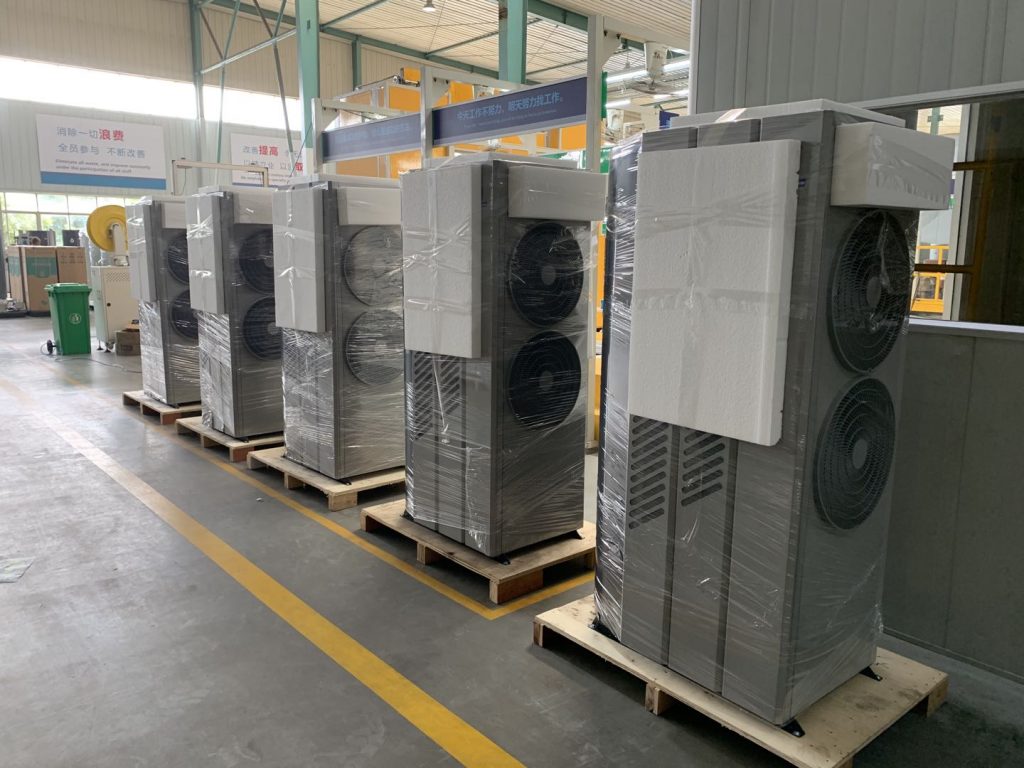Pompe à chaleur air-eau R134a Les pompes à chaleur air-eau utilisant le réfrigérant R134a sont devenues de plus en plus populaires ces dernières années en raison de leur efficacité énergétique élevée et de leur faible impact sur l'environnement. Selon une étude de cas menée par la Commission européenne, les pompes à chaleur air-eau utilisant le R134a avaient un COP de 3,2, ce qui les rend très efficaces pour transférer la chaleur de l'air extérieur à l'eau utilisée pour le chauffage.
En outre, le R134a a un faible potentiel de réchauffement de la planète et d'appauvrissement de la couche d'ozone, ce qui en fait une option plus respectueuse de l'environnement. Bien qu'il existe d'autres fluides frigorigènes, le R134a reste un choix rentable et fiable pour les systèmes de pompes à chaleur air-eau. Dans ce blog, nous allons explorer les avantages de l'utilisation du R134a dans les systèmes de pompes à chaleur air-eau et la manière dont il peut contribuer à réduire la consommation d'énergie et les émissions de carbone.
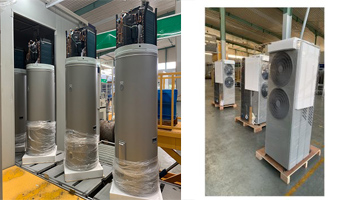
- Pose intégrale ou fractionnée en option
- Technologie du système de chauffage à deux étages
- Peut fonctionner à une température ambiante de -35°C
- Fonctions : 80℃ eau chaude, chauffage/eau chaude domestique, désinfection de l'eau
- COP élevé, sécurité et économie d'énergie
- Technologie de haute performance à basses températures ambiantes
- Technologie de décongélation intelligente
- Protection multiple, longue durée de vie
- Contrôle efficace de l'EEV
-Installation flexible
-Retour sur investissement élevé
-Applications dans divers projets
-Échangeur de chaleur personnalisé FANTASTIC à haut rendement
- Haute efficacitéConception antigel et antigivre au fond du recycleur spécial
| Modèle | KRS118B-350V | KRS118B-420V |
| Capacité du réservoir | 350L | 420L |
| Matériau du réservoir intérieur | Acier émaillé (Acier BTC340R, épaisseur 2,5 mm) | Acier émaillé (Acier BTC340R, épaisseur 2,5 mm) |
| Enveloppe extérieure | Acier galvanisé peint | Acier galvanisé peint |
| Pression de service nominale du réservoir | 0,8MPa | 0,8MPa |
| Niveau d'étanchéité | IPX4 | IPX4 |
| Condenseur | Échangeur de chaleur à microcanaux | Échangeur de chaleur à microcanaux |
| Puissance de l'élément électrique | 2500W | 2500W |
| Puissance nominale de la pompe à chaleur | 1300W | 1300W |
- Chauffage de la maison, Maison ancienne avec radiateur et remplacement de l'ancien chauffage au gaz ou électrique.
- Appartement, villa, hôtel.
- Hôpital ou atelier à usage spécial.
- Ferme laitière, usine de galvanoplastie.
- Désinfection des aliments, séchage, blanchisserie, etc.
Quel est le prix d'une pompe à chaleur air-eau ?
En réalité, les chauffe-eau électriques à air comprimé représentent en moyenne 18 % de vos dépenses d'électricité, selon strength.gov. chauffe-eau électrique à pompe à chaleur Plus votre chauffe-eau est ancien, moins ses kilomètres sont verts.
Si chaque ménage aux États-Unis utilisait un chauffe-eau à pompe à chaleur (moins de 55 gallons), les économies réalisées sur la facture d'électricité atteindraient $eight.2 milliards de dollars par an, selon la mégastar des énergies renouvelables.
Les chauffe-eau à pompe à chaleur (hybrides) coûtent de $1,200 pour les réservoirs de 50 gallons à $2,500 pour les réservoirs de 80 gallons fabriqués par les meilleurs producteurs. sécurité de votre maison La taille du réservoir et le produit exceptionnel influencent le plus le prix de l'unité. À partir de 2021, la température initiale de l'eau est de $400 pour un chauffe-eau à résistance de 50 gallons, alors qu'elle est de $1100 pour un chauffe-eau ordinaire à pompe à chaleur de 50 gallons.
Il est recommandé de faire appel à un expert pour l'installation de votre chauffe-eau à pompe à chaleur haute température afin de maximiser l'efficacité du système de chauffage à deux étages. Selon HomeAdvisor, les frais d'installation d'un nouveau chauffe-eau résidentiel à pompe à chaleur des fabricants chinois sont d'environ $seven hundred à $900.
Qu'est-ce que le R134a et comment fonctionne-t-il dans les systèmes de pompes à chaleur air-eau ?
Le R134a est un réfrigérant hydrofluorocarbone couramment utilisé dans les systèmes de pompes à chaleur air-eau. C'est un choix populaire en raison de sa grande efficacité énergétique, de sa stabilité thermique et de son faible impact sur l'environnement. Le R134a absorbe la chaleur de l'air extérieur et la transfère à l'eau, qui circule ensuite dans le système de chauffage du bâtiment.
Une étude de cas menée par la Commission européenne a montré que le R134a est un réfrigérant efficace pour les systèmes de pompes à chaleur air-eau. L'étude a examiné les performances des pompes à chaleur au R134a dans un immeuble résidentiel en Espagne sur une période de trois ans. Les résultats ont montré que les pompes à chaleur étaient capables de maintenir des températures intérieures confortables tout en réduisant la consommation d'énergie et les émissions de gaz à effet de serre.
Outre ses avantages en termes de performances, le R134a est également largement disponible et relativement peu coûteux par rapport à d'autres fluides frigorigènes. Il a un faible potentiel d'appauvrissement de la couche d'ozone et un potentiel de réchauffement planétaire de seulement 1 300, ce qui est nettement inférieur à d'autres fluides frigorigènes comme le R410A.
Quels sont les avantages de l'utilisation du R134a dans les systèmes de pompes à chaleur air-eau ?
L'utilisation du R134a dans les systèmes de pompe à chaleur air-eau présente plusieurs avantages. Tout d'abord, le R134a a un rendement énergétique élevé, ce qui signifie qu'il peut transférer efficacement la chaleur de l'air extérieur à l'eau utilisée pour le chauffage. Cela permet de réduire les factures d'énergie et les émissions de carbone.
En outre, le R134a a un faible impact sur l'environnement par rapport aux autres réfrigérants. Son potentiel de réchauffement de la planète et son potentiel d'appauvrissement de la couche d'ozone sont faibles, ce qui en fait une option plus respectueuse de l'environnement.
Une étude de cas menée par la Commission européenne a révélé que les pompes à chaleur air-eau utilisant le R134a avaient un COP de 3,2, ce qui signifie qu'elles étaient capables de produire 3,2 unités de chaleur pour chaque unité d'énergie consommée. Il s'agit d'un taux de rendement élevé qui démontre l'efficacité du R134a dans les systèmes de pompes à chaleur air-eau.
Dans l'ensemble, l'utilisation de systèmes de pompes à chaleur à air haute température R134A présente les avantages suivants : efficacité énergétique élevée, faible impact sur l'environnement et rentabilité.
Existe-t-il des alternatives à l'utilisation du R134a dans les systèmes de pompes à chaleur air-eau ?
Oui, il existe plusieurs alternatives à l'utilisation du R134a dans les systèmes de pompe à chaleur air-eau, notamment le R407C, le R410A et le R32. Ces fluides frigorigènes peuvent offrir une meilleure efficacité énergétique ou un moindre impact sur l'environnement, mais ils présentent également leurs propres avantages et inconvénients qu'il convient de prendre en compte.
La pompe à chaleur cheveux/eau est-elle plus chère ?
La résistance commune de 50 gallons à haute efficacité énergétique coûte $four hundred, tandis qu'un chauffe-eau à pompe à chaleur refroidi à l'air de 50 gallons coûte $1100. La valeur environnementale de l'unité mais, ce prix de gros de chauffe-eau à pompe à chaleur à air ont des prix de fonctionnement plus bas, et le consommateur résidentiel commun peut économiser un total de $800 sur leurs paiements d'énergie après 4 ans.
Peut-on utiliser le R134a dans une pompe à chaleur ?
Les pompes à chaleur de taille moyenne et grande utilisent généralement le R134a comme réfrigérant. Cependant, comparé au NH3 (ammoniac), le R134a est moins performant. Cela est dû à sa pression relativement basse, qui se traduit par un volume plus élevé que le compresseur doit traiter. Par conséquent, le R134a n'est pas particulièrement rentable en termes d'efficacité.
Puis-je utiliser le R134a au lieu du HFC 134a ?
Comme le montrent les informations fournies, le R134a et le HFC134a sont deux substances distinctes, mais ils possèdent des propriétés physiques pratiquement identiques et peuvent être utilisés de manière interchangeable. Le R134a et le HFC134a ont tous deux une valeur ODP (potentiel d'appauvrissement de la couche d'ozone) nulle, ce qui indique qu'ils ne contribuent pas à l'appauvrissement de la couche d'ozone.
Pompe à chaleur air-eau r134a Photos et vidéos
une pompe à chaleur air-eau est moins chère qu'un chauffage
Comparée à toutes les autres formes de chauffage courantes, la pompe à chaleur air-eau est le système de chauffage le plus efficace sur le plan énergétique et le moins cher à exploiter.
Inconvénients d'une pompe à chaleur air-eau r134a ?
Il faut un temps relativement long pour chauffer un volume d'eau à une température donnée. Afin d'éviter d'être en retard par rapport à la demande, en particulier pendant les périodes de pointe, la plupart des systèmes de chauffage à eau chaude sont également équipés d'un système de trad.
Réfrigérant courant pour les pompes à chaleur commerciales
La plupart des pompes à chaleur utilisent le R134a ou tétrafluoroéthylène, le R-410a ou difluorométhane + pentafluoroéthane, et le R-744 ou CO 2 ou dioxyde de carbone pur.
Vous aimerez peut-être :

